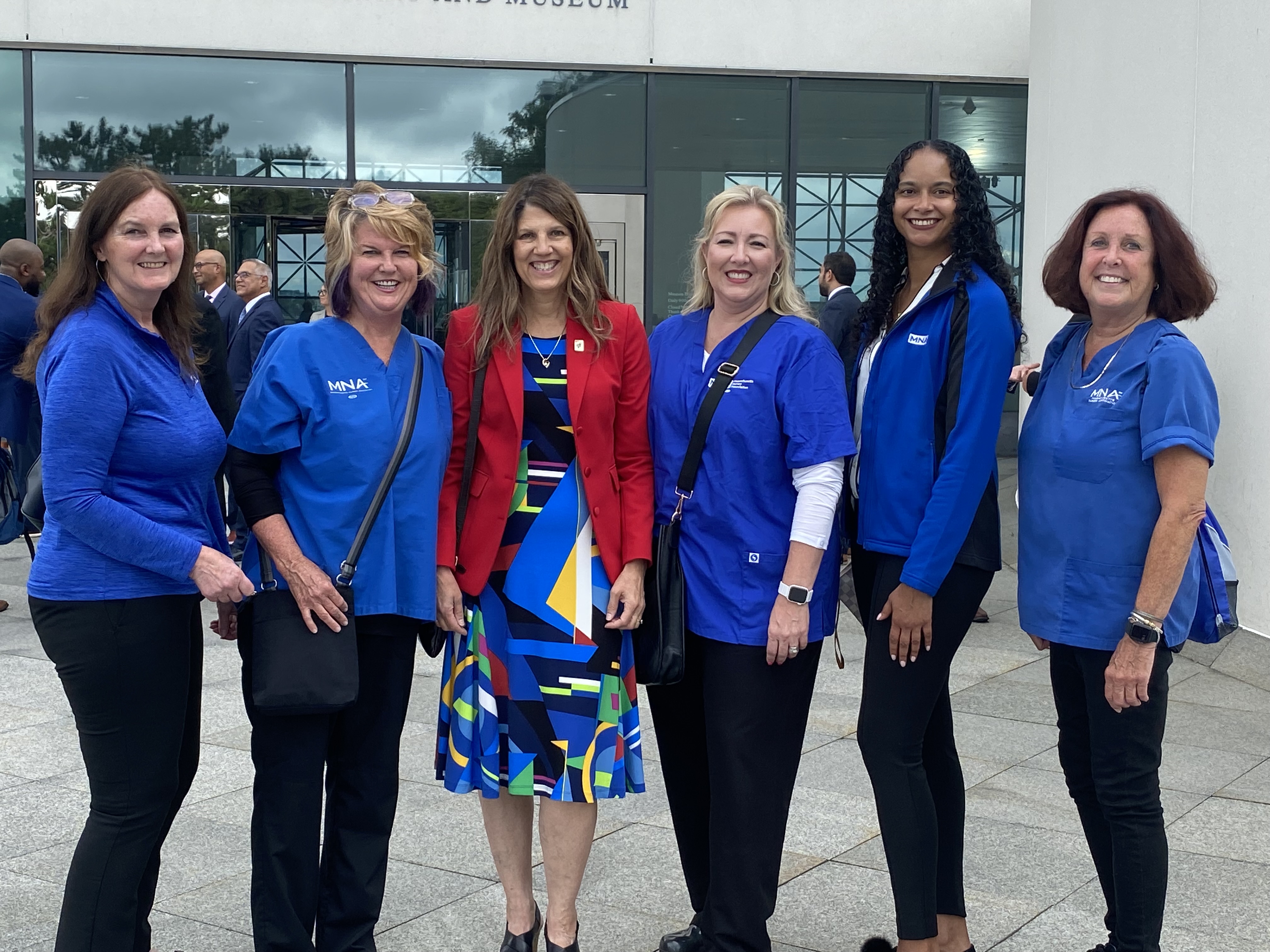Recognizing the 60th anniversary of President John F. Kennedy’s historic moonshot speech, on September 12, 2022, President Joe Biden delivered an update on his relaunched Cancer Moonshot Initiative and progress made on its moonshot goal of “ending cancer as we know it.”

“Beating cancer is something we can do together,” Biden said. “And that’s why I’m here today.”
ONS President Jeannine M. Brant, PhD, APRN-CNS, AOCN®, FAAN, attended the speech by invitation. “This was a milestone event for ONS,” she said. “ONS has been engaged with Moonshot since its inception, and it’s exciting that we continue to be recognized as key stakeholders in the Moonshot initiative and in the delivery of cancer care across our country.”
On the cancer research and treatment front, Biden discussed the creation of the Advanced Research Project Agencies for Health (ARPA-H), a new agency under the National Institutes of Health tasked with improving the government’s ability to speed biomedical and health research. He also announced his intent to appoint Renee Wegrzyn, PhD, as the first director of ARPA-H.
“ARPA-H will have the singular purpose to drive breakthroughs to prevent, detect, and treat diseases—including cancer, Alzheimer’s, diabetes, and other diseases—and enable us to live healthier lives,” Biden said.
Biden initially called for the ARPA-H during campaigning, and the agency was established in March 2022 through a $1 billion investment.

ONS nurse scientists and other cancer care organizations have reaped the benefits of Moonshot funds to speedily develop treatments and care modalities to cut cancer deaths and improve the quality of cancer care. “I have a Moonshot grant for more $1 million in collaboration with the University of Washington to examine two methods of testing healthy populations for germline variants that can lead to cancer,” Brant said. “I’m excited about the relaunch of Moonshot and for the discoveries that lie ahead.”
Other new developments included a national trial for a new test that could detect cancer via blood samples, a scholar program to support cancer researchers, and an executive order to support the manufacture of biotechnologies essential for cancer treatment in the United States.
“I predict ARPA-H will emerge as a new and exciting member of the United States biomedical ecosystem,” Biden said. “But it’s not enough to invent technologies that save lives. We need to manufacture advanced biotechnologies here in the United States.”
He added, “Today’s action is going to ensure that the United States leads the world in biotechnology and biomanufacturing, creating jobs, reducing prices, strengthening supply chains so we don’t have to rely on anywhere else in the world.”
Biden reignited the Cancer Moonshot in February 2022 with the ambitious but admirable goals of reducing cancer deaths by 50% during the next 25 years, improving the lives of patients with cancer and survivors, and “ending cancer as we know it.”
“The goal is to cut cancer death rates by at least 50% in the next 25 years, to turn more cancers from death sentences into chronic diseases people can live with, to create a more supportive experience for our patients and families, and to update our fight against the cancer,” Biden said.
Brant met with Biden personally after the event, and he passed along a message for ONS members and oncology nurses around the country. “As I introduced myself as the ONS president, President Biden paused and spent focused time chatting with me about the positive impact nurses have on patients with cancer and their families,” Brant said. “He said that they would not have gotten through Beau’s illness without the support of oncology nurses. He even reported that after Beau died, he would occasionally take the hospital-based nurses dinner to remind them of the importance of their work and to let them know how much he appreciates them. He asked me to personally thank oncology nurses for their contributions and for the work they do.”






